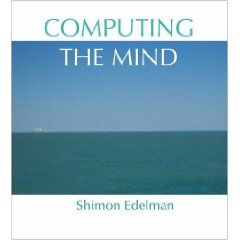Adams, W. A. (2009, April 22). Mind = Computation. [Review of the book, Computing the Mind: How the Mind Really Works]. PsycCRITIQUES – Contemporary Psychology: APA Review of Books, 54 (Release 16, Article 4). Retrieved April 22, 2009 from the PsycCritiques database.
Shimon Edelman’s book is a unique blend of cognitive psychology, artificial intelligence, neuroscience, and philosophy. He argues that the mind is a computational system that can be understood and could be implemented in silicon just as well as in biological tissue.
That idea is now widely accepted in cognitive and evolutionary psychology and in artificial intelligence. The key point is that the computation itself is the consciousness. It doesn’t matter what hardware is used to accomplish the computation, whether a digital computer, a brain, or a system of ping-pong balls and beer cans, as long as the output is mental content, such as language and thought.
But Edelman goes a step farther. He says that the brain, as a computational device, generates the mind. But that’s not what the computational hypothesis says. Even on a computer, we would never say that the hardware “generates” the software. How could a hardware device generate its own software? Wouldn’t it need software to do that?
I don’t accept the computational hypothesis. I am quite sure that consciousness is not a computation, and that the mind is not computable. But Edelman’s book is based on a misunderstanding of the computational hypothesis, with an error so fundamental that the book’s main idea doesn’t even make sense.

